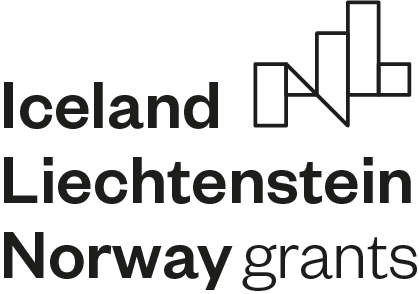The Project
Experimental learning offers a variety of experiences that cannot be acquired in a typical classroom environment, especially in natural sciences. Fieldwork-based education promotes critical thinking and problem solving, assisting in the retention of new scientific concepts.
“EDUCOAST – Nature-Based Education in Coastal GeoSciences – A field station in southern Portugal” aims at promoting nature-based education in coastal and marine geosciences through classroom lecturing and field-based practical exercises. The educational offer includes school (elementary and high) and local associations’ visits on-demand with hands-on activities, academic training (internships, M.Sc., and Ph.D.), international summer schools, professional training for maritime personnel, tourism professionals, and secondary school teachers.
The project is the joint collaboration between the the Portuguese Institute for Sea and Atmosphere, I. P. (promoter), the Faculty of Sciences of the University of Lisbon, the Portuguese Environment Agency, I.P., and the Centro de Ciência Viva de Tavira.
The EDUCOAST project is funded by the EEA Blue Growth Programme’s grant under call #5 “Education”. It allows the implementation of the training program and covers the expenses of the national and international trainees.
Location
The educational activities take place at the IPMA Experimental Station, Tavira (EEMT), southern Portugal.
The station is located in a unique coastal setting that serves as an open-sky lab and features fields of dunes, saltmarsh, lagoon, sand barrier islands, and beaches.
Laboratory
The EEMT Marine and Coastal Geology Laboratory is a well-equipped research lab for sedimentological analysis financed by the National Roadmap for Research Infrastructures of Strategic Interest (RNIE) grant under the EMSO-PT project. The laboratory consists of two labs and a container with scientific equipment.
Lab 1 features Malvern Mastersizer 3000 for fine grain-size analysis; Eijekelkamp calcimeter for the determination of carbonate content; sample divider Retsch PT 100 for accurate sediment handling; Planetary Ball Mill Retsch PM 100 for sample grinding; water bath JULABO GmbH, and Universal Oven Memmert for sample drying.
Lab 2 is equipped with Retsch Camsizer P4 for analyzing particle sizes and shapes; Micro-Raman Witec Alpha 300R for acquiring sample chemical information non-destructively; and Binocular Microscope Leica MZ16 and Lupa Leica WZ4W with wi-fi for mineralogy characterization and imaging.
The container on-site hosts a Geotek standard Multi-Sensor Core Logger (MSCL-XCT) for 2D and 3D core analysis.
Activities
The activities offered within the EDUCOAST project prioritize preserving and protecting the natural environment. Lecturing and hands-on exercises underpin the importance and sustainability of coastal systems, using the Ria Formosa as an example. The educational offer is diverse and includes the following activities.
Schools and Associations
Visits on demand: field and lab activities for experiential learning and reflection.
Academic Training
Field-based training in coastal and marine geosciences to undergraduate and graduate students.
High School Teachers’ Training
Training for high school teachers in the domain of coastal processes, using the Ria Formosa as an example.
Professional Training
Professional training for maritime and tourism personnel.
Summer School
Training for Ph.D. and postdoctoral students to learn field and laboratory techniques used in coastal morphodynamics and geological oceanography.
Communication and Outreach
Dissemination of project activities, with the aim of promoting education based on coastal and marine geosciences.
Team

- Ana Isabel Rodrigues
- Mafalda Carapuço
- Marcos Rosa
- Marta Nogueira
- Paulo Oliveira
- Pedro Brito
- Tanya Silveira
- Teresa Drago

- Francisco Fatela
- João Cascalho
- Maria da Conceição Freitas
- Rui Taborda

- Ana Ramos
- João Afonso

- Sebastião Teixeira
Contacts
EEMT – Estação Experimental de Moluscicultura de Tavira
Vale Caranguejo s/n 8800-737 Tavira Portugal
Latitude 37º 07’17.93’’N | Longitude 7º37’12.13’’W
Phone: (+351) 281 326 951 / (+351) 281 027 902
Email: educoast.fieldstation@gmail.com
Through the Agreement of the European Economic Area (EEA), signed in the city of Porto in May 1992, Iceland, Liechtenstein and Norway are partners in the internal market with the Member States of the European Union. In order to promote a continuous and balanced strengthening of economic and trade relations, the parties to the European Economic Area Agreement have established a multi-annual Financial Mechanism, known as EEA Grants, through which Iceland, Liechtenstein and Norway provide financial support to member states of the European Union, which includes Portugal. For the period 2014-2021, a total contribution of €2.8 billion has been agreed for 15 beneficiary countries. Portugal will benefit from an amount of 102.7 million euros.
Learn more at http://eeagrants.gov.pt




















